INT. MEMPHIS – AMURICA – DAY
A sunny January Sunday afternoon at Amurica, the photography studio on Cleveland, with couches and comfy chairs arranged in a circle. Expensive-looking cameras top tripods aimed at the people seated: Savannah Bearden, Erik Morrison, Benjamin Rednour, G.B. Shannon, Ben Siler, Drew Smith, Edward Valibus, Brad Villane, and Billie Worley. Cans of Wiseacre Beer and film scripts are passed around.
Worley tells a joke to the room that can’t be repeated because he said it was off the record before he said it. It’s hysterical on shock value alone. Then Worley returns to his running-gag ribbing of Smith about a line Commercial Appeal film writer John Beifuss wrote about the pair last year for their performances in the short movie Songs in the Key of Death: Worley and Smith are “arguably the best actors in local indie film today.” In Worley’s hands, the compliment becomes alternately a needle to somehow use against Smith, a statement of false modesty, then self-deprecation, and then a triumphant peacock feather.
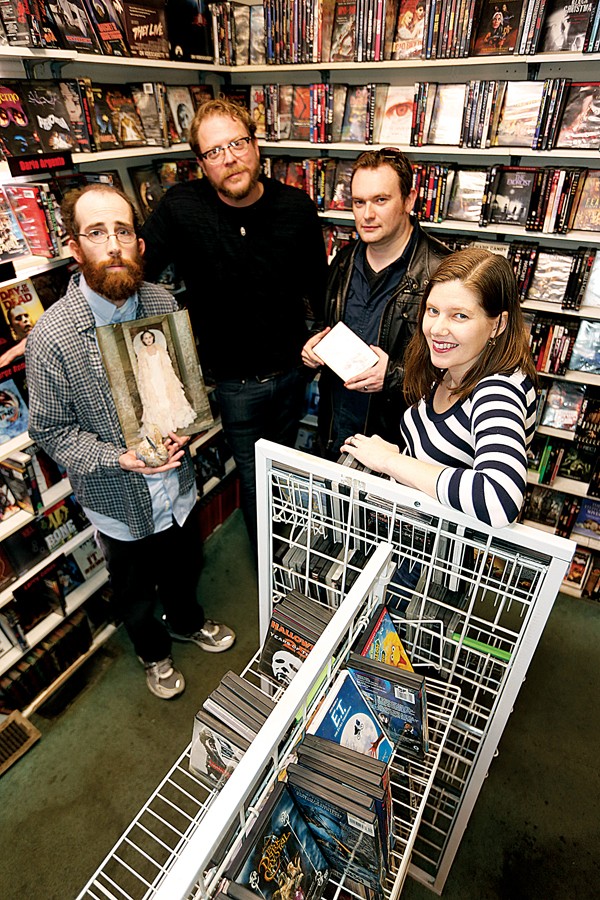 Justin Fox Burks
Justin Fox Burks
(L-R) Ben Siler, G.B. Shannon, Edward Valibus, Joann Self Selvidge
At some point, Valibus steers the group back to the business at hand. This is, after all, work: Though no one in the room is getting paid for it, this is a meeting of the regular gathering the group calls Script Bucket. It’s a combination pitch session, Saturday Night Live-style skit workshop, table reading, screenplay criticism panel, and local film news discussion.
Shannon brought his script for Songs in the Key of Death to one of the first Script Bucket meetings last year. Valibus would ultimately go on to direct the zombie comedy short, co-written and co-produced with Shannon, with cinematography by Morrison and boom operation/sound mixing by Rednour.
“We knew immediately that the starring role was perfect for Worley. There’s a bit of improv in it,” Valibus says. “I did a rewrite of the end of the film, and that gave us a second-half star actor to carry the scene. We brought in Drew Smith, who has great comedic skills.” At this Script Bucket, Valibus tells his collaborators that Songs in the Key of Death has just been accepted into another film festival. That’s five acceptances and zero rejections to date.
It’s good news, but what’s next for these filmmakers? The Script Bucket gathering first considers a script from Valibus about a funeral. The prospective film is cast for a read-through and performed and then dissected. When should this film be set? Modern day or in the 1800s? What’s the history of embalming? What visual gags can be added? Then the group goes through it again with blocking and more embellishments.
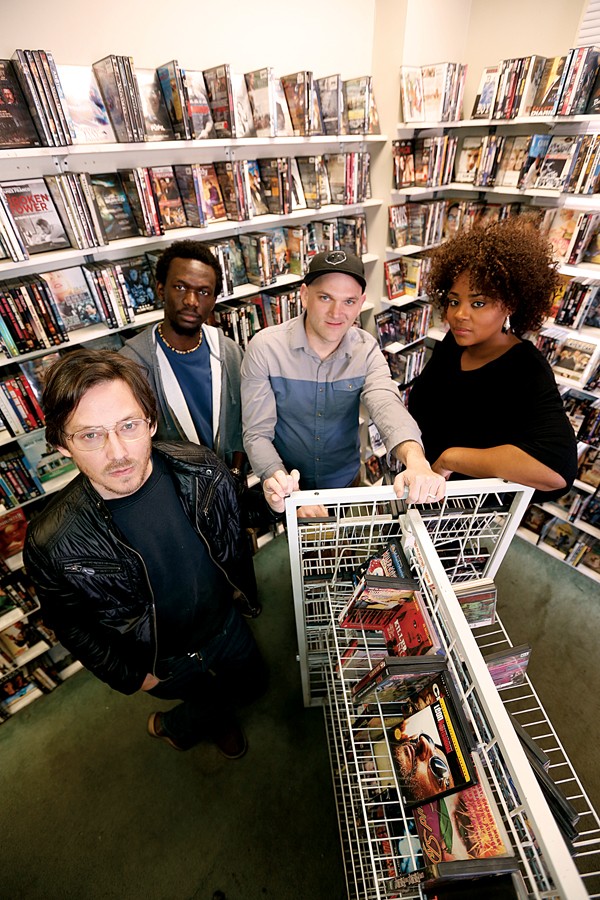 Justin Fox Burks
Justin Fox Burks
(L-R) Brian Pera, Emmanuel Amido, Morgan Jon Fox, DeAara Lewis
The next script is from Siler about a man in a peculiar, extreme situation. Everyone agrees it could be shot a lot of different ways: Dogville-style? Animated? Start with realism and evolve into something else?
One or two films may come out of Script Bucket sessions this year, but the urgency to finish a project may not hit home until the Indie Memphis deadline is looming later in the year. And there’s no telling what the next Script Bucket might bring: Maybe the next big thing in independent Memphis filmmaking.
In the meantime, Worley has another anecdote, this one involving a local celebrity, which can’t be repeated. He’s working. You never know what will wind up in a film.
INT. MEMPHIS –
PLAYHOUSE ON THE SQUARE – INDIE MEMPHIS – NIGHT
Though to an outsider, Script Bucket appears to be the product of a tight-knit troupe of filmmakers, there are actually several different sets of mini-filmmaking communities represented. Morrison, Rednour, and Valibus constitute Corduroy Wednesday Film Company; they’ve worked in the past with Villane, a local TV news producer; Shannon works closely with ace Memphis filmmaker Ryan Earl Parker; Siler is a revered independent filmmaker with institutional memory back to the now defunct Media Co-Op at First Congo; Bearden, Smith, and Worley are acting and filmmaking freelancers who work with many different people. At any given Indie Memphis Film Festival, you’ll see their names and faces numerous times. Bearden produces the fest’s awards show each year and has utilized the talents of Corduroy Wednesday and Siler.
The past few years, some of Memphis’ low-budget film community has been an archipelago of creative islands — indie filmmakers often working independent of each other. DIY sometimes trending to Do It Myself. At its best, however, the isolationism leads to consistent work. Local production companies and filmmaking cliques are like classic Hollywood movie studios writ small, with bankable stars, cohesive visual aesthetics, and recurring subject matter.
Script Bucket is an effort to build bridges between like-minded sorts. Another is an open filmmaker forum that Indie Memphis holds a few days after January’s Script Bucket at Playhouse on the Square’s Theatre Café in Midtown. More than 30 filmmakers, roughly a third of them women, sit at tabletops and direct their attention to Brighid Wheeler, Indie Memphis’ program manager. She’s there to hear what the filmmakers have to say: What do they need? What can Indie Memphis do, or keep doing, to support the artists? Feedback ranges from technical education opportunities and ways for filmmakers to show their works in progress to each other to marketing and business workshops and networking events.
“I got a feeling there were needs that weren’t being met,” says Wheeler. “There’s not always a lot of crossover between groups of filmmakers, so people trying to come into the community have a hard time.”
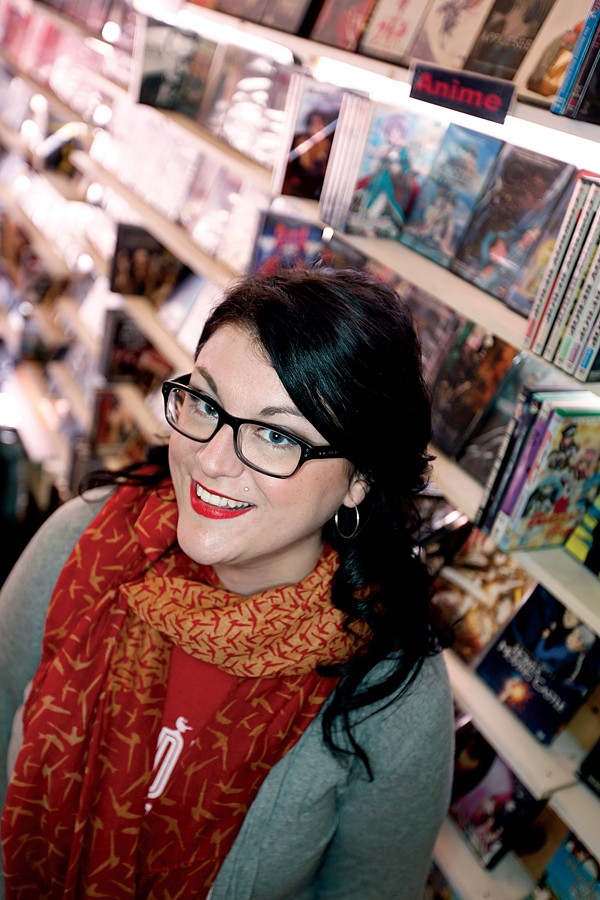 Justin Fox Burks
Justin Fox Burks
Brighid Wheeler
The misnomer is that Indie Memphis is a once-a-year event, when in fact it features year-round programming. Wheeler wants to see that calendar-wide focus reach down to helping the filmmakers make their work. But, she says, “I can’t make decisions for the community when I don’t know what they want to do.”
Indie Memphis executive director Erik Jambor points to yet another asset local film has: Malco. “Not only are we able to work with Malco to present some of our year-round programming at Studio on the Square, but they also make it easy for local filmmakers to book a screen,” Jambor says.
“We feel it’s very important to support the local filmmakers, whether their budget is $5,000 or $500,000,” says Jimmy Tashie, executive at Malco. The theater chain rents out screens for local screenings for a flat fee, which many filmmakers use to raise funds to pay for equipment upgrades and festival entry fees. If the film is strong enough and Malco sees a potential audience, a film may get a weeklong or two-week run, as was the case with the films One Came Home and Memphis Heat. “We want everybody’s dream to come true,” Tashie says.
Tashie is board chairman of the Memphis & Shelby County Film/TV Commission as well, and that organization has considerable skin in the game. Though state incentives and work to lure larger-budget film productions to Memphis dominate the headlines, the commission does a lot to support the homegrown filmmakers.
The commission publishes a production directory so that if a project needs, say, a line producer, grip, or camera operator, they can readily see what Memphis has to offer. Deputy Film Commissioner Sharon Fox O’Guin helps filmmakers cut red tape, secure permits, and find locations.
“What is lacking is money to make the films the filmmakers want to make, pay the crew what they want to pay them, and market the films adequately,” says Film Commissioner Linn Sitler.
As things stand, most local productions aren’t eligible for incentives in the first place: Even if the masters of the state purse strings were of a mind to open them, the entry-level budget for a film to qualify is $200,000, well above what a true indie film is going to spend. The budget of an average Corduroy Wednesday film, Rednour says, “consists of buying the cast and crew food. People are giving you their time on the nights and weekends, and if you can’t pay them, you want to make sure they’re fed, taken care of, and have somewhere to sit and something to drink.”
Without adequate funding to support practitioners, though, there’s been a talent drain in Memphis film. “The film industry is like the music industry in Memphis,” Rednour says. “We have the talent, but the music industry went to Nashville. The film industry went to New Orleans.”
Of the filmmakers who have stayed, most are tied to a day job. “In 16 years of attempting to make films in Memphis, I’ve made a grand total of about $1,000,” says Eric Tate (Piano Man Pictures). So he supplements his bank account, like many filmmakers, with non-filmmaking jobs.
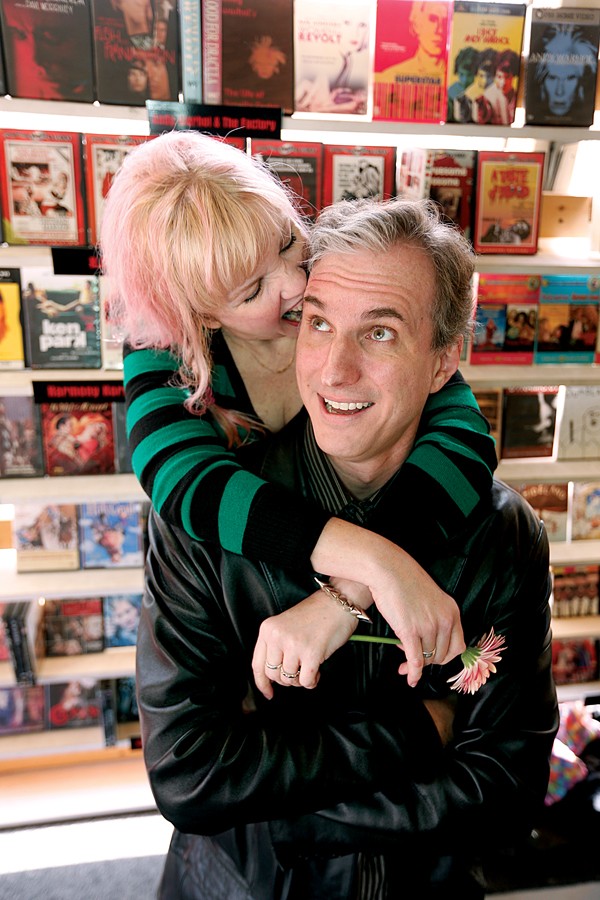 Justin Fox Burks
Justin Fox Burks
Laura Jean Hocking and C. Scott McCoy
Sam Bahre (Azbest Films) says, “Memphis’ filmmakers are working retail, waiting tables, and going into debt trying to make their art, but you can only put up with so many rude customers before it’s time to wrap it up.”
Some creatives are fortunate enough to have a job helping others create commercials and corporate projects, either on a freelance basis or working for local professional video, production, and camera companies. There can be a downside to going that route, though, says Chad Allen Barton (Piano Man Pictures). “Most people try to have part-time jobs for a while, but then it turns into a full-time job, and before you know it, they’re not making films anymore.”
“I know a great graphic artist who runs a liquor store,” says Siler. “I know musicians who run a call center. I would argue all they’re missing is a community that values them. Memphis does make fitful steps toward that, but never enough.”
Valibus has been supporting himself through filmmaking for a while, but most of it hasn’t been narrative work. He did a big job recently for Stax Museum, then he filmed a body-shop commercial, then a music video. He’s keeping the lights on, but he’s so busy with what’s in front of him, it’s hard setting up the next shoot.
Morrison works at a local film-equipment company, a great situation for a filmmaker to be in, he says, adding, “I never wanted to be a doctor or lawyer.” Rednour and Bearden work together at a film production company in Memphis; Worley at yet another.
Shannon bristles at the thought that what he’s doing with film is anything short of completely serious, even if it doesn’t pay well and even if he prefers to work in the short film medium. “I’m tired of the question from people in an interview, ‘Is this a hobby?'” Shannon says. “I spend all my time and life and money devoted to this trying to make it work, but yeah, it’s a hobby.”
EXT. MEMPHIS – NIGHT AND DAY
The indie film scene in Memphis is disjointed and collaborative. It hustles for more and is satisfied with the success of flying just under the radar. If you poll a couple dozen filmmakers, you’ll get a couple dozen perspectives. So, that’s what we did. First, here are excerpted characterizations of indie film today:
Sam Bahre (Azbest Films): “It doesn’t matter if you want to be a cameraman or an actor, you’re gonna have to work that (boom) pole like a stripper at some point in your Memphis film career.
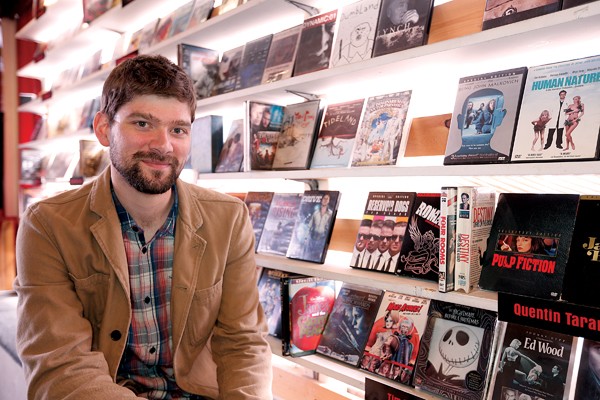 Justin Fox Burks
Justin Fox Burks
Erik Morrison
“The filmmaking community here is hungry; they want to work. I know a lot of people in this city who spend their week at menial jobs all day and then work crew in all of their spare time for free. This has got to be the capital city of working on film sets for no money.”
Chad Allen Barton (Piano Man Pictures): “It can be absolute insanity to shoot here: Planes, trains, automobiles, dogs, people honking their horns at you, and people coming up to you during a take to ask if they can be in the movie. I’ve had the cops called on me four times. The weather destroys every schedule you make.”
Savannah Bearden (actress, producer): “I love making films in Memphis because there’s still a novelty to it here. Nobody’s really made the rules yet. I lived in L.A. for about five-and-a-half minutes, and hearing people talk about making films out there made me crazy. My old roommate was a director who showed me this completely forgettable four-minute short he’d made — for $80,000. All I could think was: Do you know what you could do in Memphis for that kind of money? In Memphis, you could make a short for $80,000 if you wanted, but why the hell would you? Most of the time, all it takes to make a four-minute short here is lunch and beers. Sometimes just beers. I just never wanted to hustle to make films. Hustling does not come naturally to me. I like that you don’t have to hustle in Memphis.”
Jeremy Benson (Live Animals): “I’ve always thought it was cool that someone can make a movie for no money in Memphis and take that movie to the Hollywood Film Fest and then watch that little movie go all around the world. It shows what a bunch of people who care about something can accomplish with passion alone, ’cause we sure as hell didn’t have any money.”
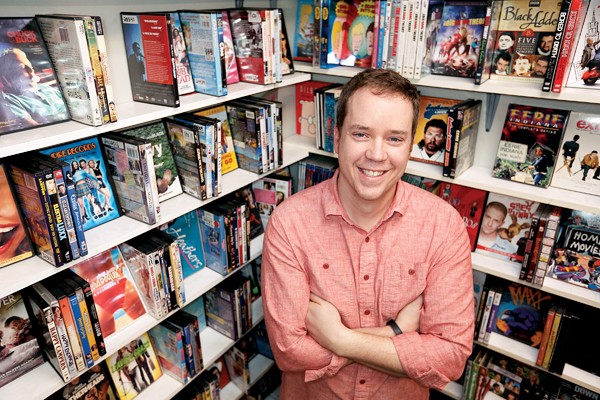 Justin Fox Burks
Justin Fox Burks
Drew Smith
Nick Case (Paper Moon Films): “My first real film job was as a PA on 21 Grams, and I remember the director, Alejandro González Iñárritu, saying he chose Memphis over many other cities including Atlanta and Mexico City, because there is a soul here unlike any other cities.”
Morgan Jon Fox (See filmography, page 20): “I attribute my filmmaking success to the love and care I was shown by the people in this city when I was just a young filmmaker with a heart filled with passion and a crazy dream to make a movie. Other cities would’ve squashed me … chewed me up and spit me out with criticism and demands. People here truly love being involved, collaborating, and seeing other people succeed. I love this. It’s beautiful. I really feel like Memphis knows what it is … flaws and all. There’s truth in those flaws, there’s originality, there’s magic … there’s soul.
Laura Jean Hocking (See filmography, page 20): “Memphis is architecturally interesting and historically lush, and there should be no reason that large-scale productions shouldn’t be choosing us as a location over Georgia and Louisiana.”
DeAara Lewis (Tricks., The Forgotten Ones): “Being a native Memphian, my name traveled faster because the city is not saturated with filmmakers, especially female filmmakers of color.”
C. Scott McCoy (See filmography, page 20): “After my experiences making films, I no longer believe in the auteur theory, that the director is everything. Making a movie is more like being in a band, a complete team effort, even if the director is driving the bus.”
Ryan Earl Parker (See filmography, page 20): “The Memphis filmmaking community is talented, hardworking, and, most importantly, hungry. The drive to create important and artful films is strong here in part because it is so difficult.”
Brian Pera (See filmography, page 20): “Memphis leaves me be and lets me concentrate. I’m able to bring the people I need into town and build films based on what I have, not what I wish I had. The films I make, however ambitious conceptually, are willfully small and intimate in execution. That’s not an accident or a product of deprivation. I like small. I like using available things. Filming in Memphis lends itself to this and is often an asset getting people to come here.”
Joann Self Selvidge (See filmography, page 20): “If you really want to ‘make a living’ by making films, you’ve gotta hustle. Some people throw house parties, some people set up fundraising meetings, some people do crowdfunding, some people work on side projects for clients. Whatever it takes to carve out some time so you can focus on your film and make that vision a reality.”
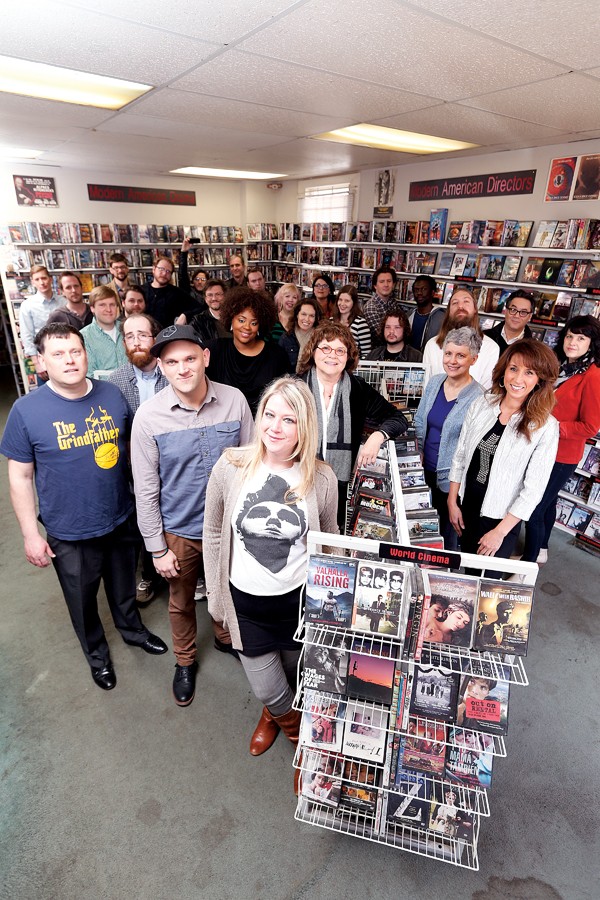 Justin Fox Burks
Justin Fox Burks
Ben Siler (See filmography, page 20): “A person with filmmaking aspirations is Charlie Brown. Making a living telling stories is a football. Capitalism is Lucy. Memphis is a city that’s been devoured by unthinking capitalism. As a result, artists suffer.”
Drew Smith (The Book of Noah, Being Awesome): “My worst experience was [when] I had bought a van from a tow truck driver for $100 for a film I was making. It ran for the first week but broke down in front of Ryan Earl Parker’s house. We still had three or four driving scenes to get, so we taped them with me bouncing and kicking the front bumper while Ryan rolled. Then we abandoned the van and the cops towed it off a month later.”
Ryan Watt (Paper Moon Films): “When you see a film being made in Memphis, you know it is being done for the love of the art and not financial reasons, which creates some really interesting work with a Memphis edge.”
EXT. MEMPHIS – THE FUTURE – MAGIC HOUR
We also polled the artists on what Memphis filmmaking can look like aspirationally and how it can get there, excerpted:
Emmanuel Amido (Orange Mound, Tennessee: America’s Community): “It took me a long time to convince myself to submit my film to Indie Memphis. In 2012, I remember being parked at the light at Cooper and Union, and I was looking in at Indie Memphis, and I thought, I want to be in there one day. But I didn’t have anyone to show me how to enter film festivals.”
Barton: “We need to get more people in Memphis excited about local films. There have been big movements for local food and beer and to support local business, but the arts are lost in that equation.”
Mark Jones (See filmography, page 20): “Memphis could take a step forward in bringing small- and perhaps even larger-budget films to Memphis: Consolidate the empty gates at the airport and open up [a concourse] to filming. To be able to shoot inside an actual airport terminal would be nice for both low and large budget films. Also, neighborhoods around the airport were bought and demolished years ago. There are still some paved streets where the houses once stood. Fake houses and fake buildings could be built on this land. Memphis could literally build a ‘studio back lot’ on the empty land next to the airport.”
McCoy: “We are Tennessee entrepreneurs working to create an export industry, and the state government couldn’t care less about us. But the movie business is hard and it is only getting harder. Hollywood doesn’t know how to save itself in the Internet age. We’re living in an era of unprecedented change. The new ideas about film and video as a medium are going to come from the grassroots.”
David Merrill (Fuel Film Memphis): “We need visionary leadership both behind the camera and in the ‘front office’ of production. We need leaders in the community to provide the educational opportunities for filmmakers to learn the skills they’ll need to effectively tell their stories and get seen in a competitive marketplace.”
Rob Parker (Meanwhile in Memphis: The Sound of a Revolution): “The Memphis filmmaking community can get to the next level simply by more people taking the initiative to make their own films no matter what. With Meanwhile in Memphis, we were not skilled, experienced filmmakers. It was me, a musician, and my co-director, Nan Hackman, a retired schoolteacher with some videography knowledge. But we had a vision to make this documentary and were able to learn what we needed to along the way.”
Pera: “I don’t compare myself to other filmmakers, and I try not to do that to Memphis as a city. I wouldn’t be making films living in some other city. Whatever little bit of magic, miserable or sublime, Memphis has, doesn’t need my idea of perfection projected onto it. Memphis has not only highly competent or skilled crewpeople and performers but also deeply talented ones, people I consider local treasures.”
Marie Pizano (principal of MVP3 Entertainment Group, 2014 presenting sponsor of On Location: Memphis International Film & Music Fest): “I don’t know what everyone else is doing, but this is what I’m going to do for my part: I’m going to film two to three films a year, lower budget but not lower quality. If it takes me years, I’ll do it. That’s how they did it in New Orleans. I’m working with the whole world to help me pull this together right here in Memphis. I’m going to bust down every door I can. I’m going to go walk that walk. There are so many gems here; we’re sitting on a gold mine. And no one listens. So, to hell with this, I’m going to go do it.”
Geoffrey Brent Shrewsbury (17 Inch Cobras, You Better Behave): “I believe whole-heartedly that script is king. Money and, in return, crew, follow good scripts. If Memphis turned out one strong script a year, we’d be on the map. But, as they say, if it were easy, everyone would be doing it.”
Melissa Anderson Sweazy (John’s Farm): “We have a ridiculous amount of talent here: brilliant DPs, composers, writers, and actors. We need the funding to put them to work. My wish is for there to be the Memphis equivalent of the Tennessee Arts Commission, where local filmmakers could apply for grants to help defray production costs/festival expenses. Something like the Awesome Foundation, where Memphians could pool resources to donate to local film.”
Rachel M. Taylor (Avarice): “We need to get on board with the idea of self-distribution. It’s going to be the future for independent filmmakers.”
S. Bearden: “I like that the film community here is still relatively untainted by Hollywood and big-time productions. There’s an innocence and sincerity about the community here that doesn’t exist in larger markets, kind of a ‘let’s put on a show, you guys!’ mentality. I hope we never lose that.”


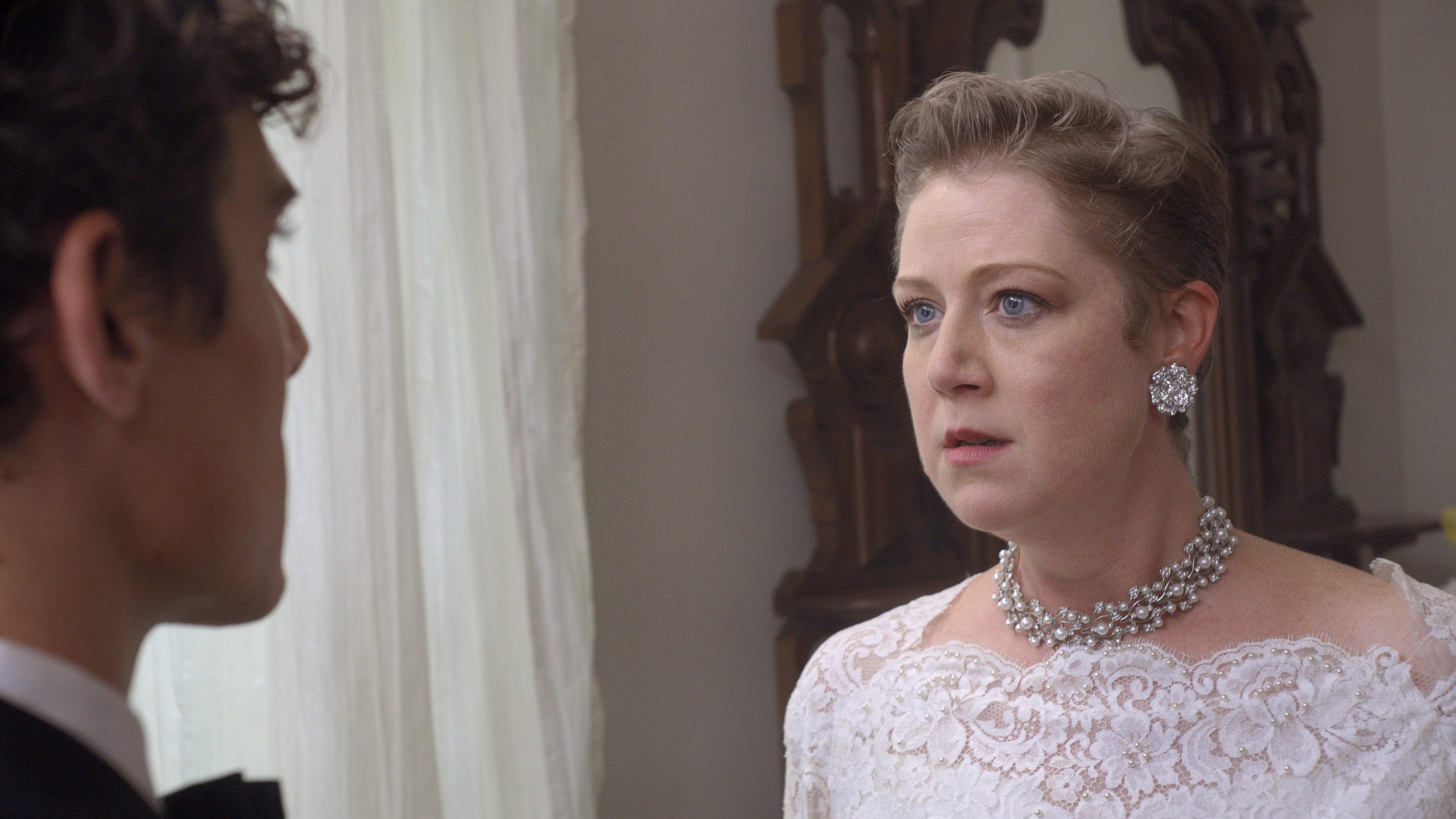
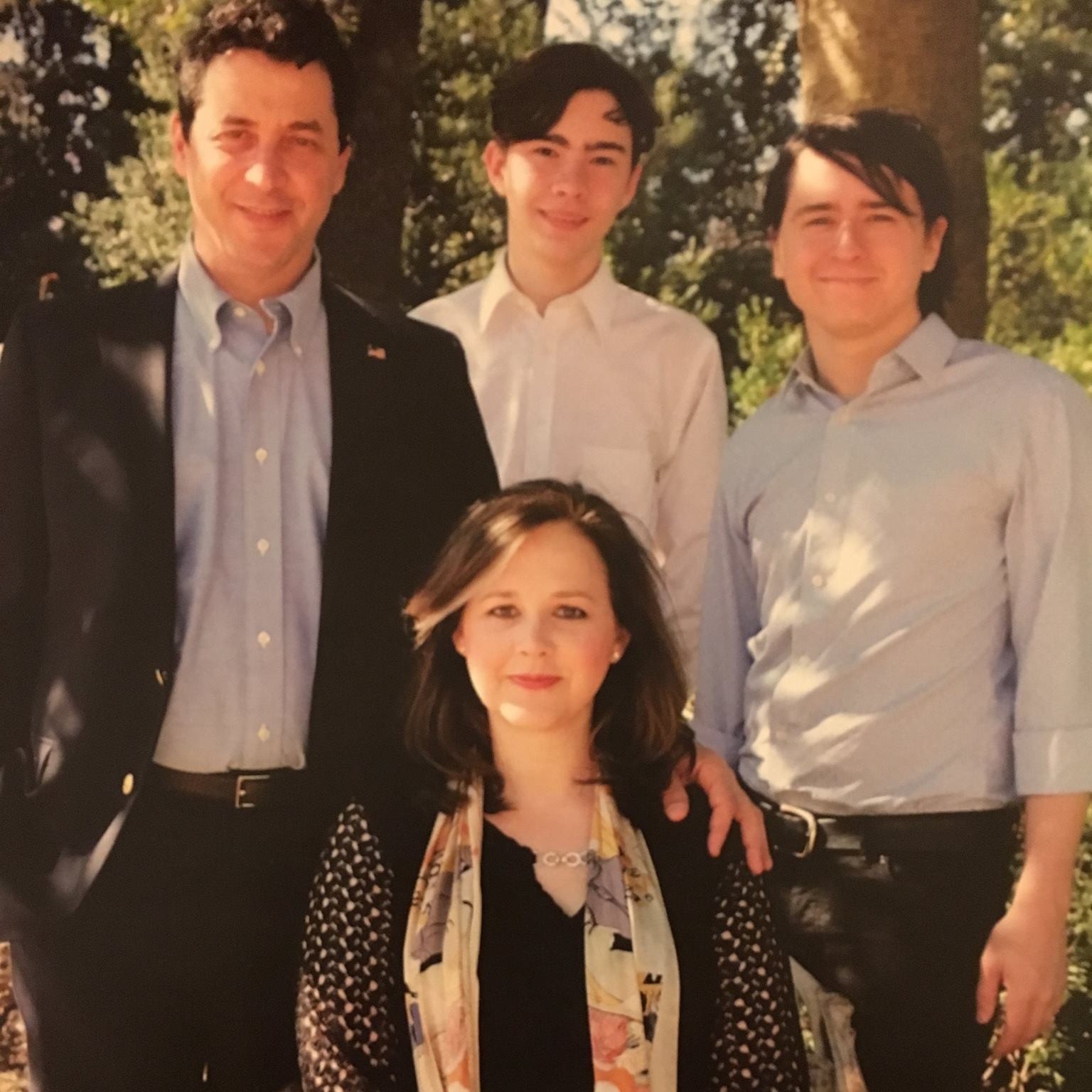
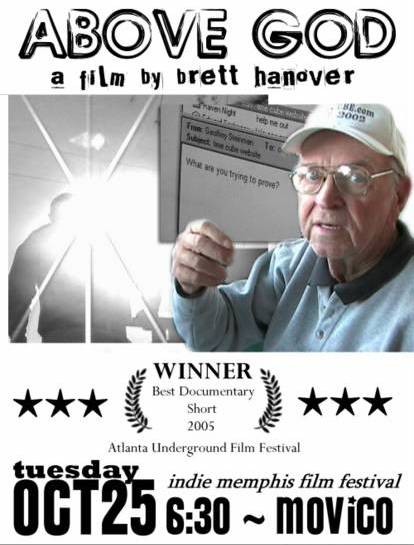
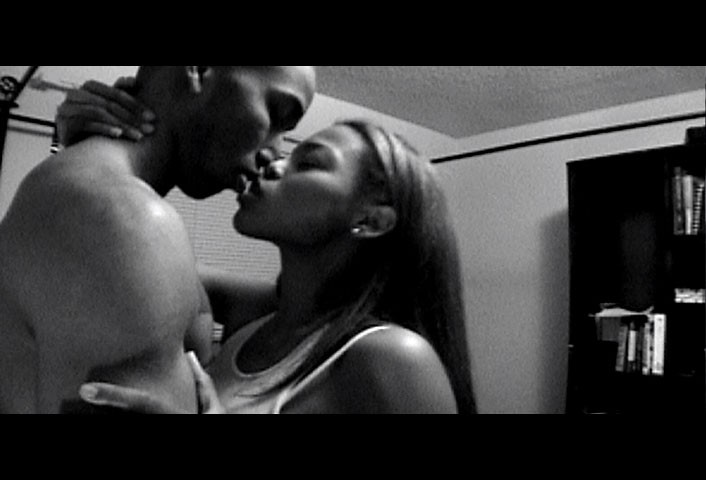
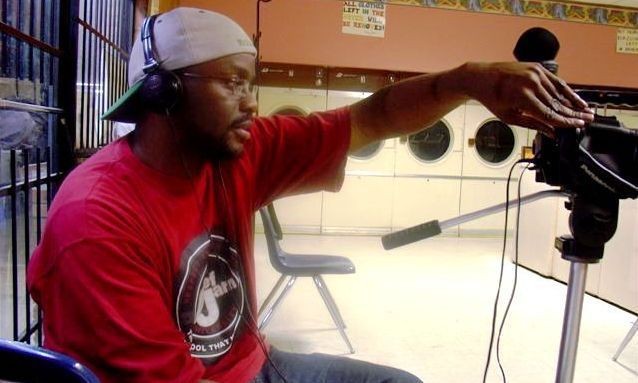
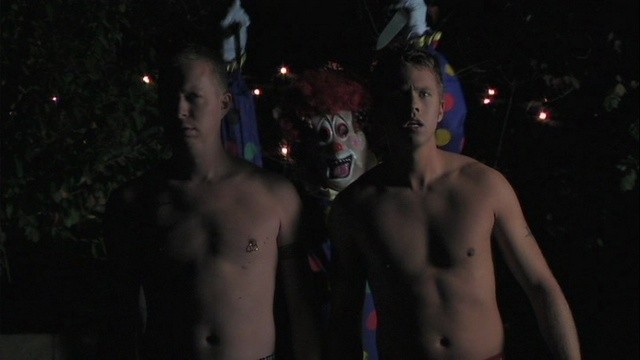
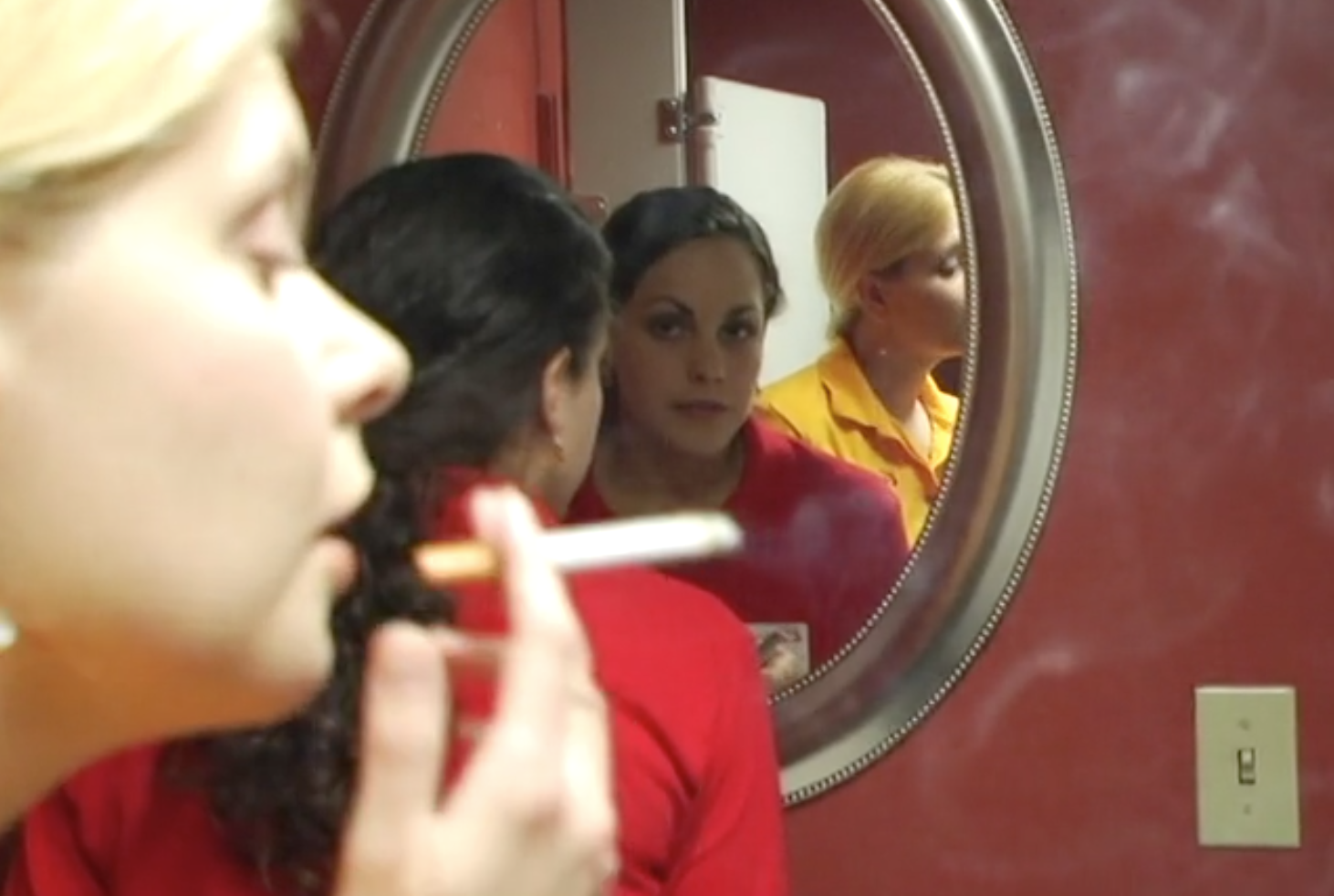
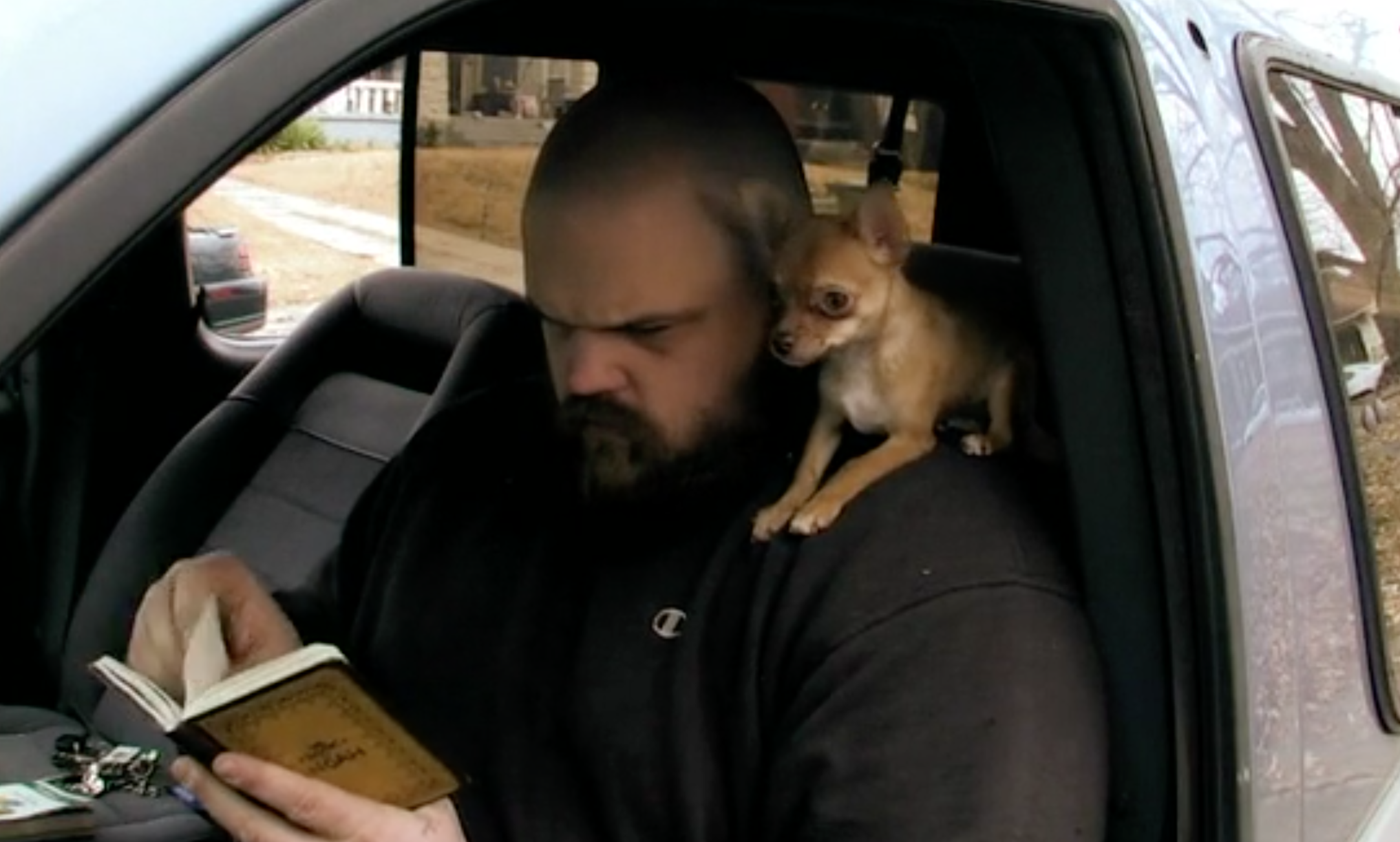
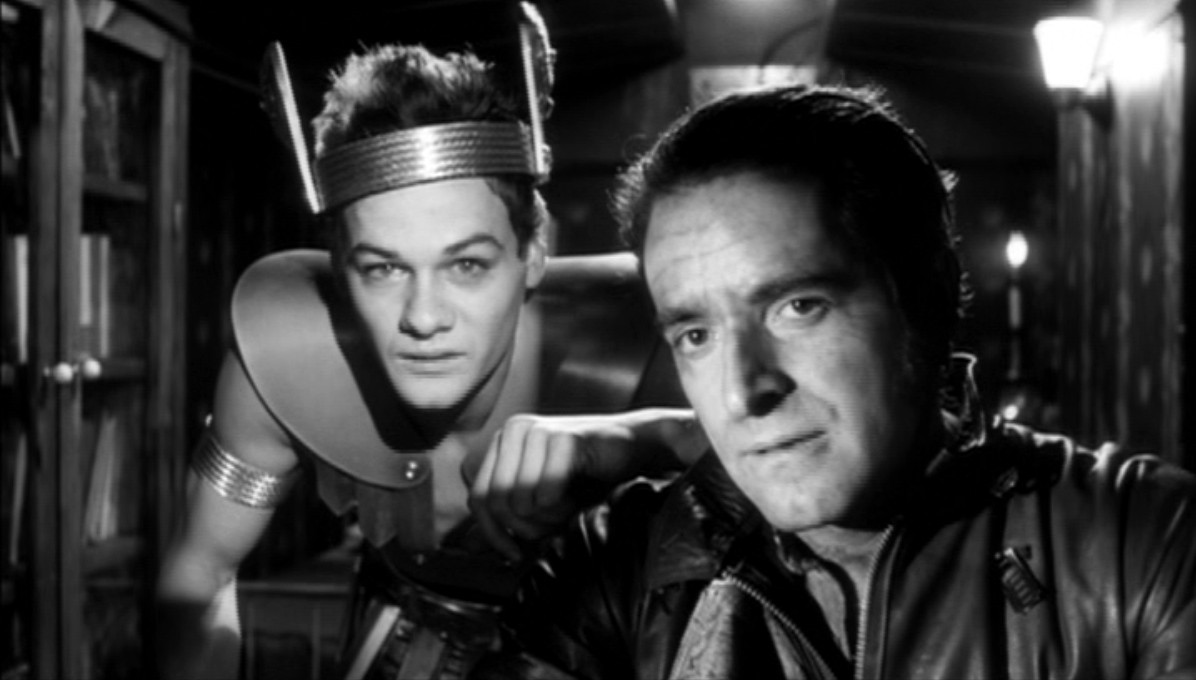
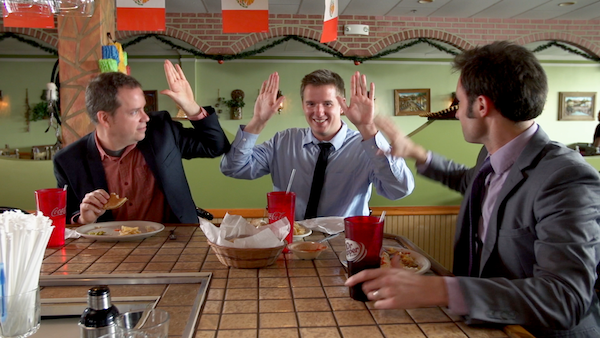
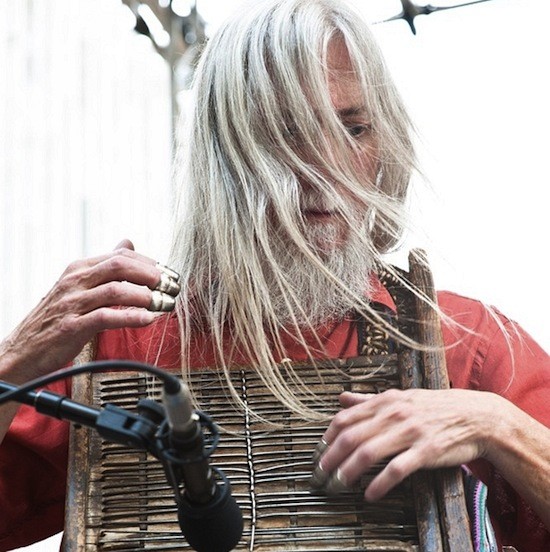

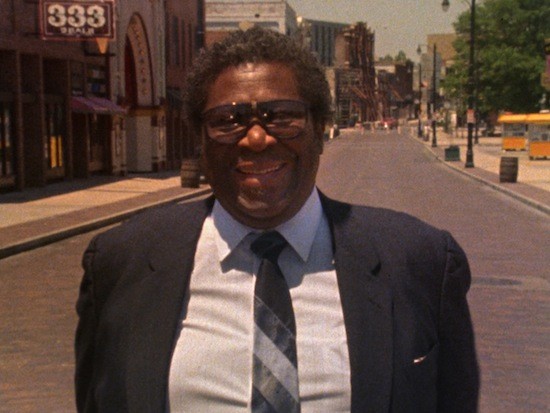

 Justin Fox Burks
Justin Fox Burks  Justin Fox Burks
Justin Fox Burks  Justin Fox Burks
Justin Fox Burks  Justin Fox Burks
Justin Fox Burks  Justin Fox Burks
Justin Fox Burks  Justin Fox Burks
Justin Fox Burks  Justin Fox Burks
Justin Fox Burks